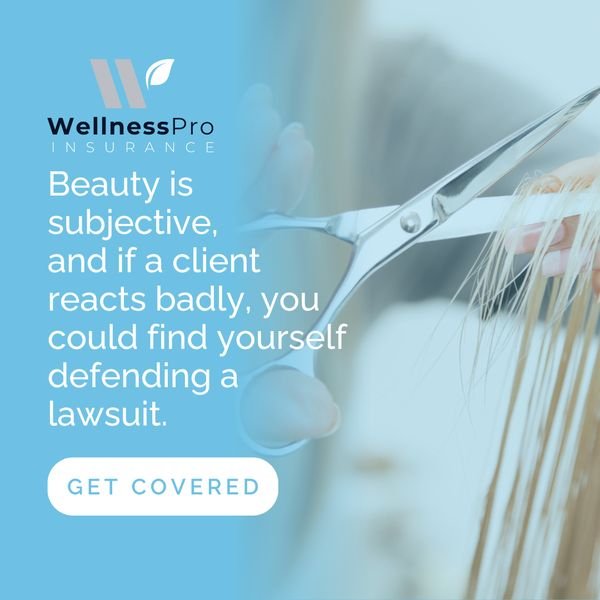Step-by-Step Guide to New York State Business Insurance Requirements
Operating a business in New York State entails a lot of responsibilities. Probably top of the list is getting the right kinds of insurance.
Understanding what type of insurance is needed may protect your business from such risks and ensure you comply with state laws.
You May Read: The Best Method to Save Money in the US: Practical Tips for Financial Success
New York State Business Insurance Requirements
This guide will steer you through every step of the requirements for businesses to have insurance in New York State, stated very simply and clearly.
What’s a simple way to reduce your risk of getting sued by a client you’ve injured? Show you care.

And make sure you have the right insurance to cover their medical expenses. Business insurance protects both you and your clients. Get covered & focus on what you do best: making clients look & feel amazing. 💅🏼
Understanding Business Insurance Basics
Business insurance protects your business from unknown loss, such as property damage, lawsuits brought against you, or injury or loss to employees.
The types of insurance that you will require depend on the type of business you operate, the number of employees you employ, and the business-specific operation risks.
New York State law mandates that certain forms of business insurance be in effect to operate legally. Some apply to all businesses, and others depend on the type of business you have. Failure to comply with the above mandates can lead to fines or even legal action.
Types of Business Insurance:
- Workers’ Compensation Insurance
- Disability Insurance
- Unemployment Insurance
- General Liability Insurance
- Commercial Auto Insurance
- Professional Liability Insurance
Let’s talk about each type of insurance, why it might be important, and whether your business needs it or not.
Workers’ Compensation Insurance
Workers’ compensation is mandatory for most business owners in New York.
This small business insurance covers medical costs, rehabilitation, and lost wages to an employee who gets injured or ill from their work.
Who Needs Workers’ Compensation Insurance?
Any business that employs workers full-time, part-time, or seasonal shall procure workers’ compensation insurance in the State of New York. Even a single employee requires coverage by legal mandate.
How to Obtain Workers’ Compensation Insurance:
Privately licensed insurance companies provide workers’ compensation insurance. Some businesses qualify to be self-insured if they meet specific financial qualifications.
Failure to Obtain Workers’ Compensation Coverage
Failing to carry workers’ compensation will bring heavy fines and lawsuits from the injured employee, among other possible business closures.
Disability Insurance Benefit
Disability benefits insurance is a partial wage replacement for employees who, due to illness or injury not related to work cannot go to work. It is carried by most businesses in New York.
Who Needs Disability Insurance?
Like workers’ compensation, every employer with one employee is also mandated to carry disability insurance, which only covers on-the-job or off-duty disabilities due to illness or injury.
Getting Disability Insurance:
You can purchase disability insurance from authorized private insurance companies through the New York State Workers’ Compensation Board.
Alternatively, you can choose to be self-insured as long as you are within the state standards.
Penalties for Non-Compliance:
Those employees who lack disability insurance may incur up to $500 penalties for every 10 days of coverage.
UI: Unemployment Insurance
Unemployment insurance (UI) is a kind of short-term financial assistance offered to workers who were deprived of employment through no fault of their own. New York states that it compels employers to pay unemployment insurance taxes in engaging in their trade.
Who Has to Pay Unemployment Insurance?
Almost all businesses with employees pay unemployment insurance taxes. These in turn build a fund that ensures qualified workers have the right to unemployment benefits.
How to Pay for Unemployment Insurance?
The New York State Department of Labor collects the unemployment insurance taxes on your wages paid to the employees and the assigned unemployment insurance tax rate for your business.
Penalties for Non-Compliance:
Business entities that do not register for unemployment insurance will be liable to pay back taxes, interest, and penalties.
General Liability Insurance
General liability insurance is not compulsory in New York, but it is always a good practice. Liability insurance protects your business from third-party claims regarding body injury, property damage, or even personal injury, like slander or defamation.
Who Needs General Liability Insurance?
General liability insurance is a general recommendation for almost every business, no matter the industry, as it protects your company from lawsuits and claims that may financially harm your business.
Some landlords, clients, or vendors may also require you to carry this insurance before doing business with you.
How to Get General Liability Insurance?
You can purchase general liability insurance from private insurance firms. The cost will depend on the size of your business, industry, and the dangers associated with your operations.
Commercial Auto Insurance
If the business is using any vehicle for performing its work-related operations, there should be commercial auto insurance. It will cover your company from financial liability if the accident occurs while an employee is driving a business-owned vehicle.
Who Needs Commercial Auto Insurance?
Any business that owns, leases, or uses automobiles to conduct any business needs commercial auto insurance. That includes delivery services, repair businesses, and companies that transport goods or employees.
How to Acquire Commercial Auto Insurance?
Commercial auto insurance can be acquired from private insurance companies. You can bundle this policy with other business insurance to get better rates.
What Penalties Are There for Non-Compliance?
Driving with no commercial auto insurance attracts fines or suspension of license, among other legal punishments.
Professional Liability Insurance
Professional liability insurance, commonly referred to as errors and omissions insurance, is not technically required in New York.
But is an essential form of business coverage for any business offering professional services or advice, such as consultants, accountants, and architects.
This insurance could cover claims from negligence, error, or omission in professional services rendered.
Who Needs Professional Liability Insurance?
If your business gives professional services or advice, you will want to take seriously professional liability insurance.
This type of insurance protects you against lawsuits alleging financial damage related to the services you provide.
Obtaining Professional Liability Insurance:
Purchase this insurance from private providers, typically as a part of a bundle with general liability or other business insurance policies.
Review and Customise Your Insurance Coverage
Once you meet the minimum requirements on insurance, you must regularly review your policies to confirm that they are still sufficiently protecting you.
Since no two businesses are alike, you could also need to adapt the covers to the type of risks involved in your niche. Restaurants will have better food spoilage coverage.
In another link, you would require cyber insurance if you were creating applications or software.
Meet an Insurance Agent
For more protection, you should consult an insurance agent specializing in business coverage. He can identify possible threats and suggest additional policies, which might become helpful in the growth of the firm.
With over 50 years of experience, there’s a reason we’ve become one of the area’s Insurance and Investment leaders. 📈
When it comes to your finances 💰, don’t trust them to just anyone. Discover the difference of working with a dedicated group that truly cares.
Conclusion
Following this step-by-step guide can make any business owner feel less confused by New York State’s business insurance requirements and more towards protecting the business.
The first steps include covering workers’ compensation and disability insurance for your employees, paying unemployment insurance taxes, and adding other coverage lines like general liability or commercial auto insurance based on the needs of your business.
This will ensure your business is fully protected from various risks when it has the proper insurance in place.
Discover comprehensive insurance solutions tailored to your needs. Business Insurance offers a wide range of coverage options to protect what matters most to you.



